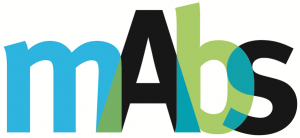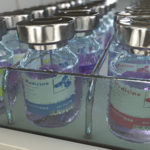 Antibodies and antibody-derived bispecifics are one of the most successful therapeutic classes due to their excellent target specificity and tunable drug-like properties. The ability to tailor antibody functions using modern engineering approaches has ushered in a new wave of bi- and multi-specific antibody therapeutics that unlock novel target classes, biology, and mechanisms of action for the treatment of human diseases. In this collection of reviews, we invite The Antibody Society members, mAbs readers, and the broader scientific community to contribute review articles focused on bispecific and multispecific antibody-based molecules. The reviews should narrate the current state of the art in bi- and multi-specific antibody therapeutics, challenges and opportunities, and speculate on new vistas for the field.
Antibodies and antibody-derived bispecifics are one of the most successful therapeutic classes due to their excellent target specificity and tunable drug-like properties. The ability to tailor antibody functions using modern engineering approaches has ushered in a new wave of bi- and multi-specific antibody therapeutics that unlock novel target classes, biology, and mechanisms of action for the treatment of human diseases. In this collection of reviews, we invite The Antibody Society members, mAbs readers, and the broader scientific community to contribute review articles focused on bispecific and multispecific antibody-based molecules. The reviews should narrate the current state of the art in bi- and multi-specific antibody therapeutics, challenges and opportunities, and speculate on new vistas for the field.
mAbs will waive publication charges for up to 8 of the best review articles selected from pre-submission inquiries, which should include the authors, title, abstract, and general outline of the intended review article.
The deadline for pre-submission enquiries is January 31, 2023.
We are particularly interested in reviews in the following topics:
• Overview of bispecific and multispecific antibody platforms (includes but not limited to Fc engineering, heavy and light chain pairing methodologies, high throughput production methods, geometrical and valency considerations etc.).
• Reviews on multispecific antibodies (beyond bispecifics i.e., more than two binding epitopes) and their applications.
• Reviews on bispecifics and multispecific antibodies beyond oncology (i.e., neurology, infectious disease, ophthalmology, rare diseases etc.).
• Reviews on various cell engagers (T cells, NK cells, macrophages etc.), overview of their design strategies, formats, applications and considerations for safety and tolerability in multiple disease areas.
• Bispecific/Biparatopic and multispecific/multiparatopic targeting beyond antibodies (Antibody drug conjugates, antibody cytokine fusions, CAR-T/NK/M therapies, ProTACs etc) in various therapeutic areas.
• Clinical development experience with bispecific and multispecific molecules with a focus on any or all of these areas: safety and tolerability, immunogenicity, biomarkers and/or bioanalytical assay development.
• Reviews on tissue targeting via bispecific and multispecific antibodies, important considerations for safety, tolerability and preclinical and clinical development.
• Focused review on developability of bispecific and multispecific molecules, CMC and manufacturing considerations. Bispecifics design and challenges in cell line development, upstream and downstream process development, analytical method development, product quality control strategy, process design and scale up, material demand and commercial manufacturing, regulatory guidance, etc.
Although these topics are especially of interest, we welcome well-written reviews in related areas as well. We intend to waive publication charges for up to 8 of the best review articles selected from pre-submission inquiries, which should consist of the title, abstract and general outline of the intended review article.
The deadline for submission of the completed review articles is August 15, 2023.
Please send pre-submission inquiries to Editor-in-Chief Dr. Janice Reichert (reichert.biotechconsulting@gmail.com), and Assistant Editors Drs. Nimish Gera (ngera@mythictx.com), Li Zhou (li.zhou@abbvie.com) and Jonathan Sockolosky (jonathan@curie.bio). Please feel free to contact us if you have any questions.
For examples of other mAbs Collections, please visit the journal website.


 On August 24, 2022,
On August 24, 2022, 